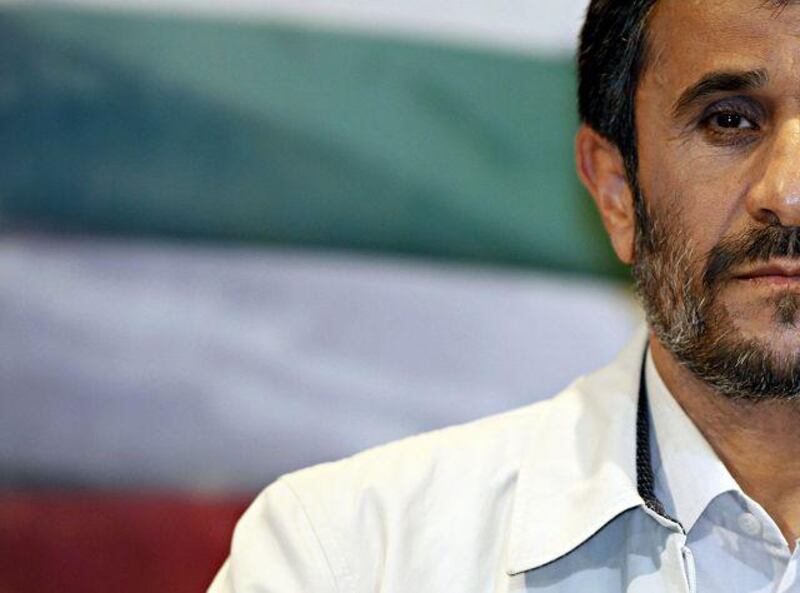TEHRAN // Iran's president, Mahmoud Ahmadinejad, has come under harsh criticism from fellow conservatives for adopting a provocative and derogatory tone against protesters who dispute the election results. On Sunday, one day after the results were released by the interior ministry and before they were confirmed by the election watchdog, the Guardian Council, Mr Ahmadinejad likened the protesters to "motes [sawdust or dirt] and dust" and "hooligans".
The results have yet to be confirmed by the Guardian Council, which is examining the allegations of electoral fraud. Mr Ahmadinejad's victory speech was broadcast several times by state-run television. Many prominent conservative politicians, including Ahmad Tavakkoli, a conservative critic of Mr Ahmadinejad and head of the parliament research centre, and Maryam Behrouzi, secretary general of the Zeynab Association - a politically conservative women's group - have also protested over Mr Ahmadinejad's attitude towards his opponents.
In a live programme on the state-run television on Wednesday, Mr Tavakkoli said Mr Ahmadinejad's tone was one of the main reasons for the present unrest in the country. "The 14 million who didn't vote for Ahmadinejad and now have questions and feel insulted, rightly or wrongly, are not 'motes and dust' and 'hooligans'. Motes and dust and hooligans are those who attacked university dormitories and students and committed those murders," Mr Tavakkoli said.
But the strongest criticism came from unexpected quarters - from a member of one the parties that had officially backed Mr Ahmadinejad's candidacy in the elections. "A person who thinks of only himself and his associates as being right and all others as wrong, and looks at others as 'motes and dust', whatever his position, has ceased to be a servant of God," Habibollah Asgaroladi, a prominent conservative politician, was quoted as saying by Farda News on Wednesday.
The Islamic Coalition Party (Motalefeh), of which Mr Asgaroladi is a central council member, still considers Mr Ahmadinejad to be the winner of the elections. The simile used by Mr Ahmadinejad to describe his opponents has given rise to considerable anger and resentment among those opposed to the election results. Many protesters now carry signs reading "We are people, not motes and dust" in their daily protest rallies.
In an expression of solidarity with the opposition, Mohammed Reza Shajarian, a popular singer, told BBC Persian television on Wednesday that his voice is the voice of the "motes and dust". Earlier in the day he had written to the head of the state-run television and radio to ask them to stop broadcasting his renowned patriotic song Iran as well as his other songs. The song, dating from the early days of the Islamic Revolution of 1979, had been played very frequently on state-run television and radio during and after the elections.
Such pro-government news agencies as Fars and the government-run IRNA news agency have also been choosing provocative headlines following the announcement of the election results, Tabnak news portal, close to defeated candidate Mohsen Rezai, said on Wednesday. msinaiee@thenational.ae





